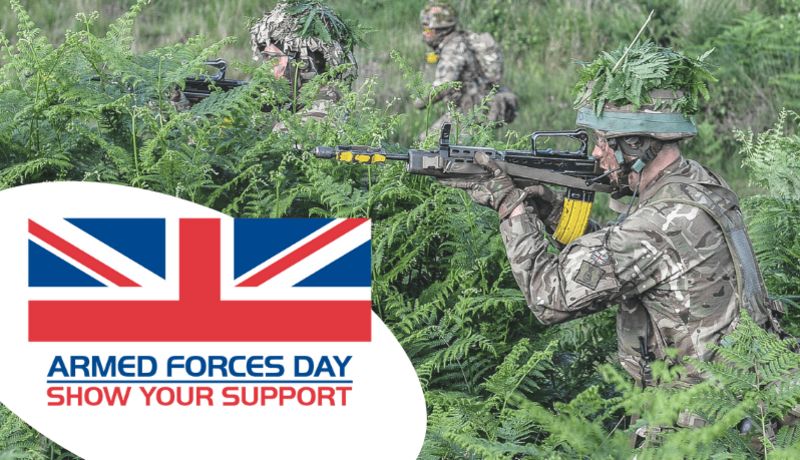Armed Forces Day | Chris Hurford
Posted on June 2022

At Venn Group, we recognise the invaluable work of the armed forces, and received the Silver Employer award for the Armed Forces Covenant scheme in 2020. This award not only reflects our commitment to this community but also the great skills this community brings to the workplace.
For Armed Forces Day, we heard from our Talent Acquisition Consultant, Chris Hurford, about his experience as a reservist.
I was an army cadet back at school, so I always had an awareness of the army, but I hadn’t thought about joining the reserves until university. They had a stall set up at the freshers fair, and after going to an open evening I decided to join up. I was part of the University Officer’s Training Corps, a reserve unit which gives students a chance to be involved on a less-committed basis. We were given training in leadership and management – which are very applicable to civilian careers – alongside time spent doing field exercises.
I loved my time there, so after university I decided to transfer to a proper reservist unit – the B Company, 4th Battalion, Princess of Wales’s Royal Regiment – where I am currently. I also wanted to take the next step in becoming an officer, so last summer I went to the Royal Military Academy in Sandhurst for eight weeks of training to gain my full commission.
Hearing about Venn Group’s Silver Covenant Award was an important factor that drew me here. Some companies I interviewed with had no idea what I did as a reservist and didn’t offer any flexibility. But when I interviewed with Venn Group, there was a good awareness of what I did and provisions were in place for reservists to take additional days off each year to serve.
There are a lot of skills involved in being a reservist: physical robustness is important, as you’ve got to be able to run for extended periods of time and carry heavy weights. Flexibility is also a core skill; being able to think on your feet and adapt quickly to new situations. Throughout this, you need to take responsibility for what you do, not relying on being told what to do all the time. A lot of the skills are also relevant to my role in Talent Acquisition; I’ve picked up skills in public interaction from the army which have been a great help as I interview potential trainees. When people tell me they’re only available for the next 20 minutes, I have to be very flexible in my approach and make the most of the time.
The army does a lot of what’s called adventurous training. I had the opportunity to go skiing in France with my unit, and I was actually paid for the experience; I think I’m the only person on the planet who has gone on a skiing holiday and come back with more money than they went out with! There are also opportunities to deploy alongside the regular army on their worldwide operations, which is something I haven’t done yet, but I’m looking forward to getting involved in the future.
We have opportunities to advance within my unit; I’m currently a Second Lieutenant, but I can progress up the chain to Lieutenant, Captain, and then Major. Within each role you gain greater responsibility and look after more soldiers. At the moment I have around 25 soldiers under my command, as I go up the ladder I can eventually command 100-200 people at a time. It’s a great opportunity to meet people from varied backgrounds; in my unit, I command police officers, students, brick layers and photographers. We’re all tied together by a shared passion for the work we do, looking for something different and an adventure that takes you beyond the nine to five.
Recent Articles
-
Flipping the Script on Islamophobia | Personal perspective | Nadia Muzaffar
Conversation is a powerful tool. Even a two-minute chat can change a perception, correct a misco...
about 1 month ago -
Pancreatic Cancer Awareness Month | Personal Perspective | Louise Francis
This year, our Birmingham office chose to fundraise for Pancreatic Cancer UK in support of my br...
about 2 months ago -
Personal Perspective| Islamophobia Awareness Month with Safiyyah Ayaz
For Islamophobia Awareness Month, we are honoured to feature passionate employees who have chosen...
about 2 months ago